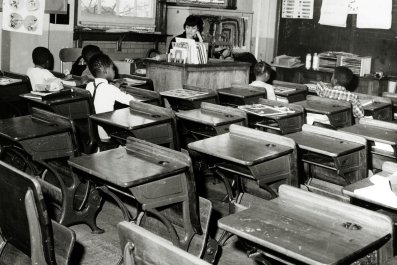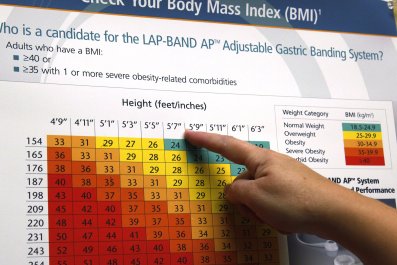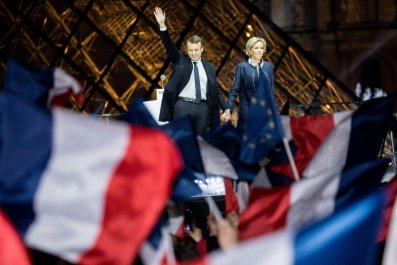Next time you get dragged off an airliner or punched by a pilot or are just overwhelmed by the feeling that air travel is more soul-sucking than sitting alone at a Barry Manilow concert, blame the internet.
But there is hope. New technology like artificial intelligence might help fix what the internet broke. And no, we're not talking about robot flight attendants that can dispense wine out of their wrists like Spider-Man shooting a web, though that would be awesome.
The trouble began around 20 years ago, when many of us started jumping on Expedia or Travelocity as our first step in booking travel. Before that, most people called a travel agent to book a flight. The agent looked at a computer screen that likely showed information from Sabre, a reservation system invented by American Airlines and IBM in the 1950s. Those systems primarily ranked flights based on flight duration—how long it would take you to get to your destination. Price figured into our travel decisions, but it was just a part of the mix, along with flight time, the agent's recommendation and brand loyalty.
The online travel sites, though, have always defaulted to ranking flights by price. Rarely do we use an agent who might give us advice. Instead, many of us obsess over our air travel decisions, checking on prices over and over, setting up price alerts, looking on some particular day at some odd time that our aunt told us was when airlines post deals. The airlines that show the lowest prices get our business.
That dynamic has pushed airlines to do everything they can to show lower prices while still making a profit—including doing all the things we've come to hate, like smushing legroom, charging extra for bags and over-burdening flight attendants so they come to hate their jobs and get snarly.
"The online travel agencies changed the nature of competition in the airline industry—from competition on elapsed scheduled flight times to price competition," says a 2012 study by Itai Ater of Tel Aviv University and Eugene Orlov of economic consulting firm Compass Lexecon. In fact, their data showed that flight delays got worse as more people based purchases mostly on price. Airlines didn't have to compete at being good—they had to compete only at being cheap. The research, Ater and Orlov reported, suggests "that the internet may adversely affect firms' performance and incentives to provide high-quality products." To anyone who has flown coach in recent years, this conclusion seems forehead-smackingly obvious.
Even if airlines want to do business differently, they can't right now. The easy price comparisons online make it almost impossible for any airline to offer a much nicer coach experience for more money. The higher price would knock that airline out of the first page of search results. Here's how stuck airlines are: Average ticket prices today are almost exactly the same as they were in 1997, adjusted for inflation. Oil prices are almost 60 percent higher today versus 1997, and fuel is usually an airline's biggest expense. The pricing pressure on airlines is so intense they can't charge more even as costs increase. To stay viable, the airlines have to squeeze us into smaller seats and make money on extras.
It might make a difference if travel sites would allow us to search for flights more like the way we search for a restaurant or apartment, by setting up different criteria that matter to us, says Eddie Yoon, consultant and author of Superconsumers. For a flight, that might include the amount of legroom we desire, as well as how many stars reviewers give the staff for service and the quality of the food on board. In most product categories, Yoon's research shows, "a small number of consumers base their satisfaction solely on price," he says. Yet not much exists to help us buy airline tickets based on more than price. So airline service keeps spinning downward, trying to find the rock-bottom level that travelers can tolerate.
We can hope, though, that we're witnessing the turning point in airline behavior. New ways of doing business, driven by technology, could soon force major changes.
Look, for instance, at an upstart air service called Surf Air and its subscription approach to travel. The company operates a fleet of eight-seat planes that can use private air terminals, allowing passengers to skip security lines, crowded gates, the temptation of Cinnabon and other common airport evils. It flies to about a dozen California cities. Customers pay $1,950 a month for unlimited flying—you just sign up for a trip with Surf Air's app, pretty much like hailing an Uber. Take four trips a month, and that's about $500 a trip for a private plane experience. The company is launching in Europe this month and says it has 3,000 members.
Surf Air and a few other on-demand air services are made possible by AI-driven software that can come to understand where and when planes are needed and make predictions about which members are likely to take which flights. As Yoon points out, a subscription changes the relationship between airline and passenger. The airline's incentive then is to treat the passenger well, not focus on revenue per available seat mile or some other dorky spreadsheet calculation. Lufthansa's Eurowings airline is now experimenting with subscriptions, testing a package of 10 one-way flights for a little more than $500.
At some point, the major airlines will make AI-based subscriptions a regular part of doing business. And that will open up even more innovative possibilities. AI software can come to understand the travel traits of individual customers, much as Netflix gets to know its subscribers' movie tastes. Let's say United adopted this technology. The software could learn that you book a lot trips to a particular city, usually pay for extra legroom and buy Wi-Fi and a couple bourbons after takeoff. AI could put all that together with United's costs and seat availability, and automatically negotiate with you for a subscription tailored to you. The deal might save you a little money, but it would also save you the time and stress it takes to set up each one of those trips, and the arrangement would give both you and the airline some pricing certainty. The relationship between you and United could be transformed from transactional and adversarial to a cuddly long-term bond.
Then, if you're a United subscriber, when they drag you off your flight, at least they'll remember to bring along the bourbon.

















